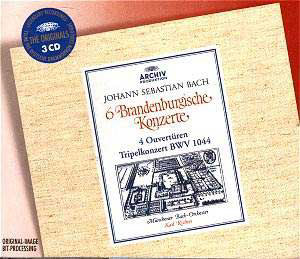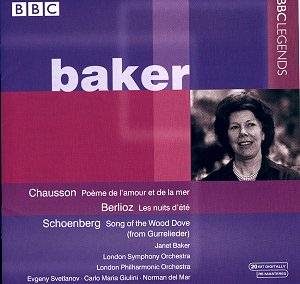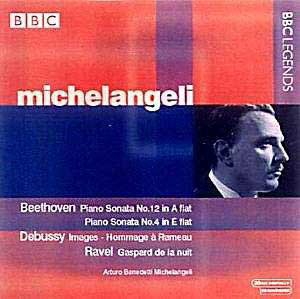 Composer: Johann Sebastian Bach
Composer: Johann Sebastian Bach
Works: Brandenburg Concertos Nos. 1-5 BWV 1046-1050; Brandenburg Concerto No. 6 BWV 1051; Orchestral Suites Nos. 1-2 BWV 1066-1067; Orchestral Suites Nos. 3-4 BWV 1068-1069; Triple Concerto for flute, violin, harpsichord and strings BWV 1044
Performers: Münchner Bach Orchester, Karl Richter
Recording: 1961 (BWV 1066-9), 1968 (BWV 1046-51), 1981 (BWV 1044)
Label: Archiv 463 657-2
The significance of Johann Sebastian Bach’s Brandenburg Concertos within the Western classical canon cannot be overstated. Composed in the early 18th century, these six concertos represent a pinnacle of Baroque orchestral music, showcasing not only the brilliance of Bach’s counterpoint but also the intricate interplay between soloists and ensemble. Karl Richter’s interpretations, captured in this comprehensive reissue, embody a critical moment in the performance history of Bach, where the music is liberated from the weighty Romantic interpretations that dominated earlier decades.
Richter’s approach in these recordings is characterized by a buoyant lightness that distinguishes his readings from those of his contemporaries, who often adhered to a heavier, more romanticized sound. In the Brandenburg Concertos, particularly Nos. 1 through 5, Richter employs brisk tempos that inject a vigorous energy into the performances. For example, the second movement of the Second Concerto, with its striking trumpet passages, is executed with a clarity and brightness that allows each instrument to occupy its own sonic space. The exhilarating interplay between the trumpet, flute, and oboe in the first movement of the Second Concerto stands out as a testament to Richter’s ability to highlight individual timbres while maintaining a cohesive ensemble sound.
The engineering quality of these recordings, originally made in the late 20th century, is commendable. The balance achieved by the Münchner Bach Orchester under Richter’s direction allows for a transparent texture that enhances the intricate counterpoint inherent in Bach’s writing. The clarity of the strings, particularly in the opening of the Third Brandenburg Concerto, allows the listener to appreciate the intricate dialogue between the solo violins and the continuo, a detail often lost in more homogenized approaches. However, it is in the Orchestral Suites where Richter’s interpretation reveals a more symphonic character. His readings tend to emphasize a denser orchestration, perhaps drawing more heavily on the Germanic traditions rather than the French influences that inform the suites’ origins. While this interpretation choice may not align with all listeners’ expectations, it adds a unique flavor to these performances.
Richter’s recordings, while not historically informed in the modern sense, strike a balance between the historical context of Bach’s music and the evolving performance practices of the 20th century. This set serves as an important bridge in the discourse surrounding Bach, offering a perspective that is both scholarly and accessible. Although contemporary performances may offer greater adherence to period practices, Richter’s interpretations are imbued with a spirit and vitality that resonate profoundly.
This reissue of Richter’s esteemed recordings is a valuable addition to any collection, particularly for those who appreciate a more traditional yet invigorating approach to Bach. While not the definitive renditions in the modern sense, they possess an undeniable charm and depth that enrich the listener’s experience of these masterworks. It is a compelling reminder of Richter’s significant influence on Bach performance practice, making this set an essential listen for both aficionados and newcomers alike.



